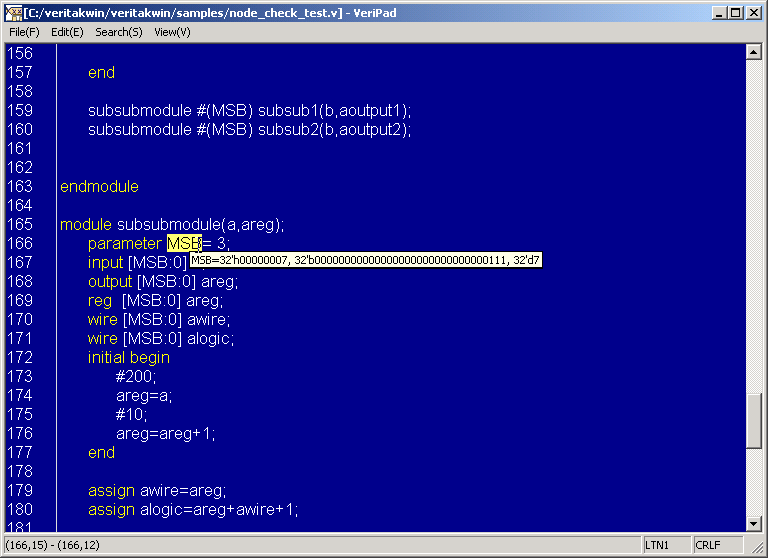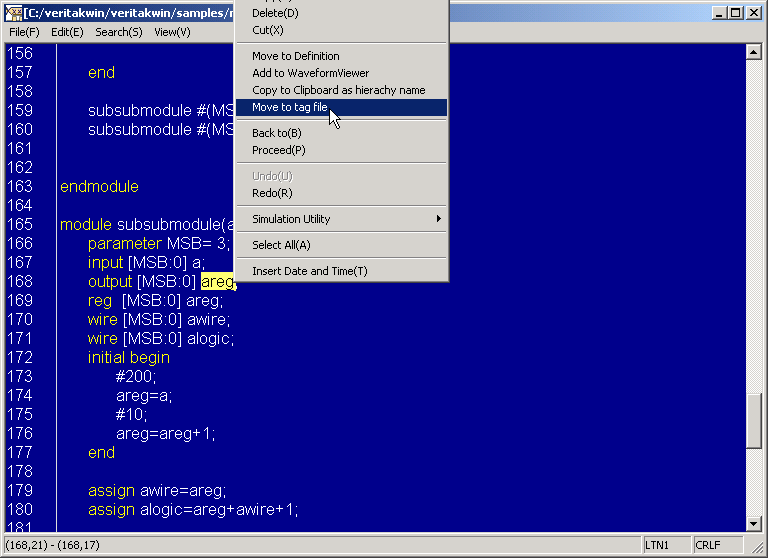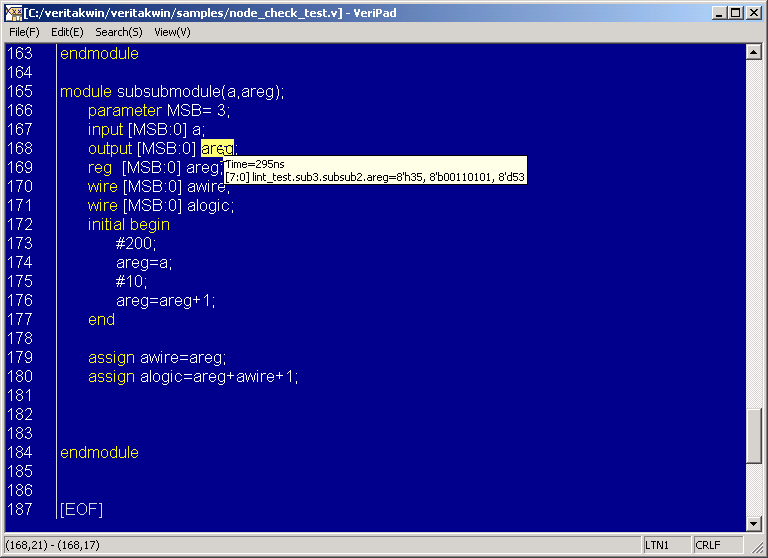
Basically trace mode2 is the same as trace mode except for generating tag
file which describes entire structure of design.
Let's look at the example.
Load Project "node_check_test.vtakprj"
Jump to tag file as below.

Here is tag file.

You can also jump to tag file from List view as well as from WaveformView.
Double-Click "lint_test.sub3.subsub2.areg" at source driver in tag file.
Then , jumped to Editor line 168.
Since tag file has not only file locational information but also Scope
information ,unique instance value can be tool-tipped as below,though susubmodule
has 6 instanced module. Time 295ns is derived from T1 cursor.

Instanced parameter also can be viewed.

Veripad can jump to tag file.
Meaning of Keywords in tag file
As Keywords,SCOPE,SIGNAL,PROCEDURAL_LOADS,PROCEDURAL_DRIVERS,Aliases,SourceDriver,Drivers_FANOUTS,DECLARED,ASSIGNED
are defined.
| KEYWORD | Meaning | Example |
| SCOPE | Scope. followed by multiple "SIGNALF". | |
| SIGNAL | Signal. Not supported memory and long vector | |
| PROCEDURAL_LOADS | RHS in procedural statement. | initial a=b; if(b);//** a<=b; a<=b[i]; b's PROCEDURAL_LOADS are all statements. |
| PROCEDURAL_DRIVERS | LHS in procedural statement | a's PROCEDURAL_DRIVER are all statements except for ** in above. |
| Aliases | Alias. actually same signal but have different name. | In instanced module, sub dut(.clock(CLOCK)); clock and CLOCK is same signal |
| SourceDriver | Declaration of Driver | reg a;//here wire c;//here assign c=a ^ b; |
| Drivers_FANOUTS | RHS in net Structure | In above signal "a and b", assign c=a ^b; |
| DECLARED | Declaration | In above signal "c" wire c; |
| ASSIGNED | Assigned (Same as DECLARED in variable declaration.) | In above signal "c", assign c=a ^b; |
| ResolverInputs | Resolver's inputs |

